What if the secret to longevity isn’t just olive oil or walking—but believing you’re someone who naturally chooses them? Many pursue Mediterranean wellness like a checklist—“eat this, walk that”—but miss the essence. True transformation comes when wellness becomes who you are, not just what you do. This isn’t about copying habits. It’s about becoming a person who embodies them.
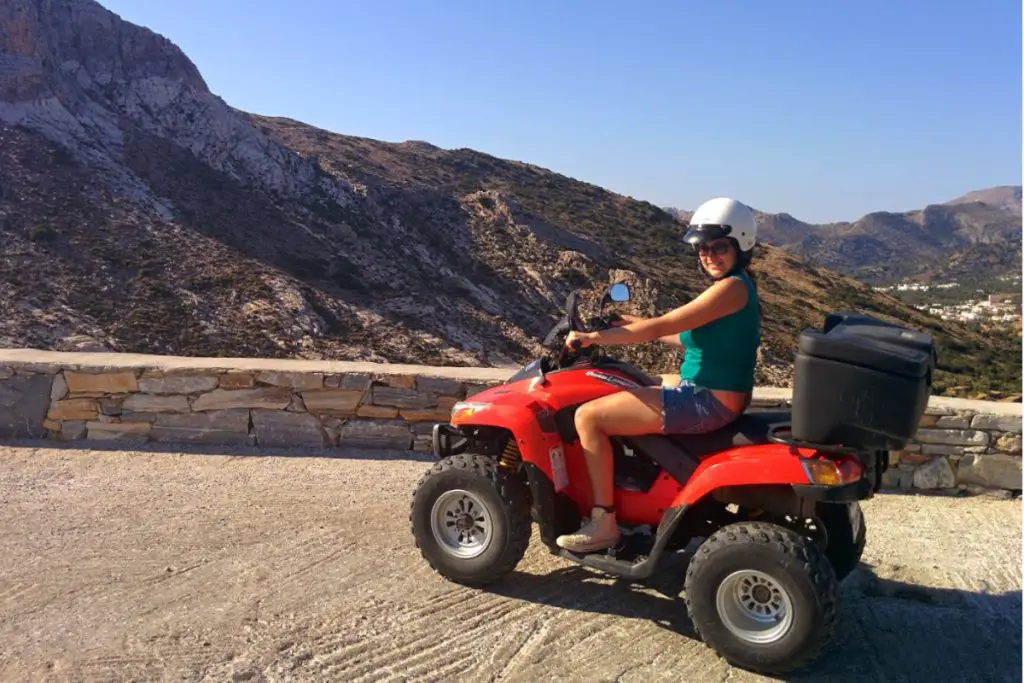
The Secret of Being Mediterranean
It’s not what you do—it’s who you become.
Trying Mediterranean habits without the identity is like wearing a costume: olive oil, walks, red wine—they feel forced.
- Outsider mindset: “Eat this. Walk that.”
- Mediterranean identity: “I savour fresh flavours.” “I move joyfully.” “I rest because I deserve it.”
The healthiest people in Sardinia and Crete don’t count steps—they live their identity.
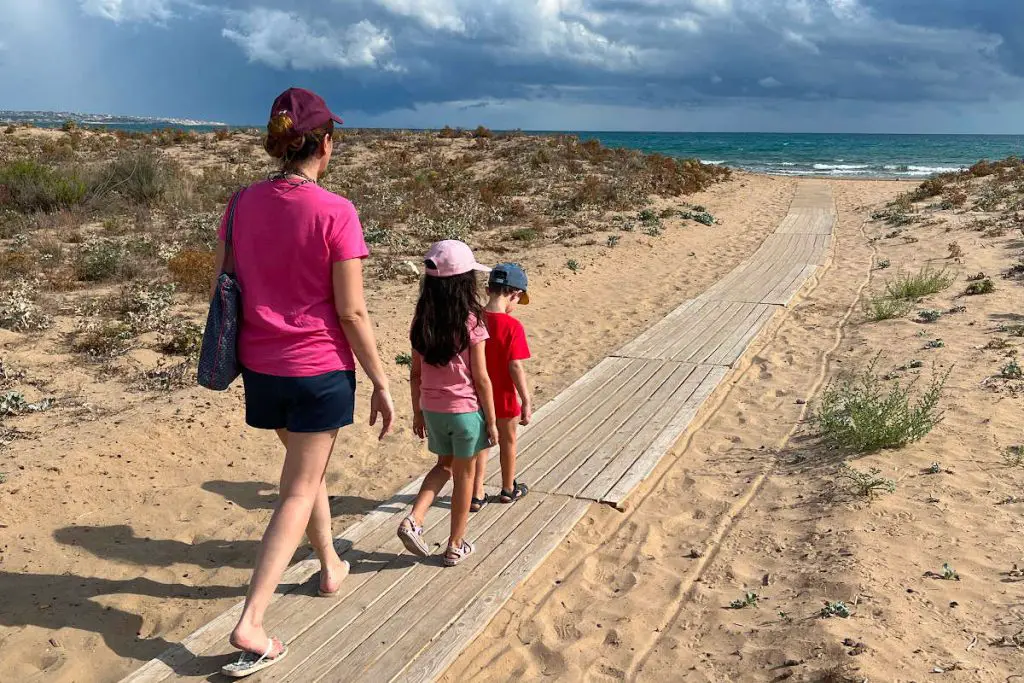
🛑 What This Isn’t:
A romanticised escape. Modern Mediterranean cities aren’t immune to fast food and modern stress. In places like Malta and Crete, younger generations are increasingly shifting away from traditional Mediterranean eating—favouring convenience over culture.
The Mediterranean Identity Shift: How Who You Are Shapes How You Live
In the Mediterranean, wellness isn’t something you do—it’s someone you are. It’s not a diet or workout routine; it’s a lived identity. And when that identity shifts, habits follow effortlessly. You don’t try to be healthy—you just are. You don’t force rest—you expect it.
Let’s explore how these deeply ingrained cultural identities shape behaviour—and how you can adopt them, no matter where you live.
Identity Override: The Shortcut to Automatic Habits
When your self-image changes, your habits change with it—automatically. If you believe “I am a joyful mover,” then walking, stretching, or dancing becomes natural. No pushing, no convincing—just flow.
This isn’t just mindset talk—it’s backed by science. A 2007 study in the Journal of Personality and Social Psychology showed that people with identity-based goals like ‘I’m a healthy eater’ maintained habits more consistently than those with outcome-driven goals like “I want to lose 10 pounds.” (Oyserman, Fryberg, & Yoder, 2007)
Why? Because identity bypasses motivation. It rewires friction into fluency. You stop asking “Should I?”—you simply do, because that’s who you are now.
The 6 Mediterranean Identities That Rewire Your Life
“In the Mediterranean, wellness isn’t something you do – it’s someone you are.”
1. The Art of Food as Theatre
(I am someone who savours food as a connection)
In Sicily, Sunday lunch stretches for hours, not because people are lazy—but because food is performance. Plates are shared, stories are told, and time slows down. The ritual is the nourishment.
This isn’t “eating”—it’s participating in a centuries-old theatre of taste and togetherness. Even a simple snack becomes sacred when you choose to treat it like a moment worth savouring.
Micro-Habit: Tonight, arrange your meal or even a handful of almonds with intention. Sit, light a candle, and say aloud: “This is my miniature feast.”
Next: Transform your kitchen into a Mediterranean sanctuary
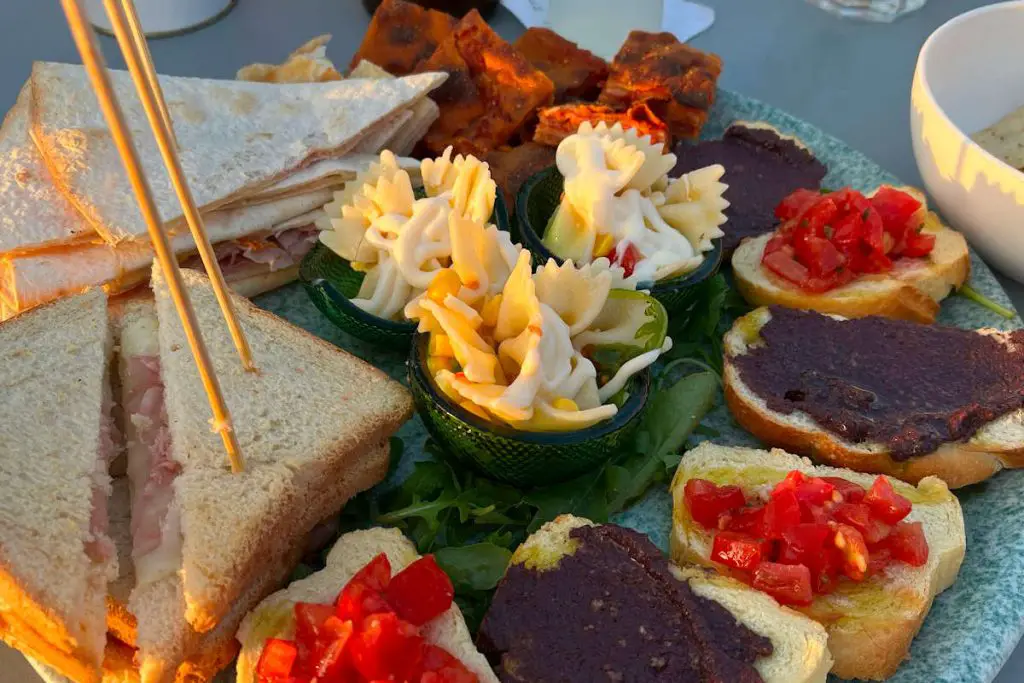
2. Every Errand is a Dance
(I am someone who moves naturally)
On Greek Mediterranean islands, where tradition still shapes terrain—movement isn’t planned, and they don’t need a “10,000 steps” app – just walk up the stair-filled villages and volta sunset strolls. The same is true of old medieval towns like Urbino and Cortona, where steep gradients or endless stairs turn errands into exercise. Villagers climb stairs, walk to the café, and carry groceries without carts. There are no fitness trackers—just life lived actively.
This kind of movement doesn’t spike adrenaline—it builds resilience. You’re not “exercising”; you’re moving because your life and landscape invite you to.
Micro-Habit: Skip the elevator or car for one task today. Walk with rhythm, hum a tune and skip the earpods, or carry your groceries like a Cretan shepherd—shoulders back, proud and present.
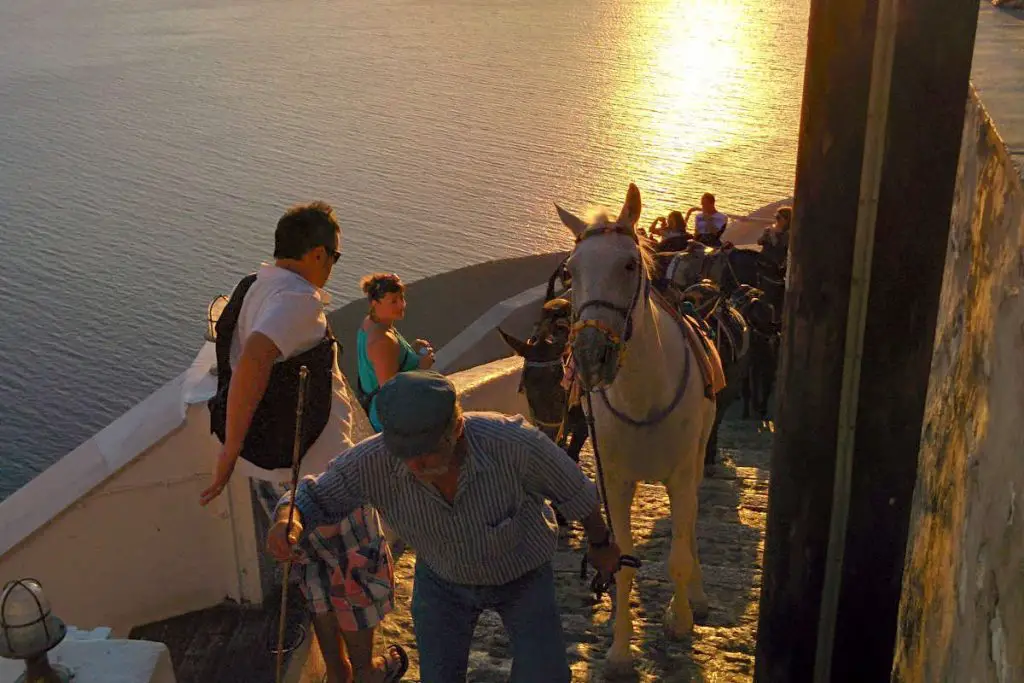
groceries carried, and sunsets walked.
3. Naps are Pride, Not Shame
(I am someone who prioritises rest and rhythm)
In Spain, the sobremesa—the culturally ingrained habit of lingering at the table after meals—functions as a built-in form of rest and social reflection. Rather than relying on digital wellness tools or scheduled breaks, this Mediterranean practice integrates relaxation seamlessly into everyday life. As Kalampogias (2022) notes, such traditions embody a form of spatial and temporal conviviality that transforms eating into an act of social continuity and emotional grounding. In this view, rest is not a luxury or reward—it is a deliberate, valued part of one’s identity and daily rhythm. “You don’t find time to rest – you decide you’re worth resting.”
And you don’t need a siesta or hammock to access this. Let yourself indulge in the dolce far niente—Italy’s sweet art of doing nothing—with a gentle pause, a warm cup of tea, or a moment of stillness.
Micro-Habit: When your meal ends, resist jumping to the next task. Instead, take three slow breaths and simply sit. You’re not being unproductive—you’re being Mediterranean.
4. Turning Loneliness into Connection
(I am someone who connects with people and laughs daily)
Across Turkey and Lebanon, neighbours still knock with plates of food. In cafés, strangers strike up conversations over espresso. Connection isn’t an event—it’s a daily ingredient.
Laughter isn’t accidental—it’s intentional. People go out of their way to bring a smile to someone’s face, whether saying a “Buongiorno” to a stranger or find humour in daily life. This lightheartedness plays a big role in emotional resilience. Taking life less seriously helps loosen life’s grip, creating space for hope, connection, and calm. Mediterranean cultures prioritise feeling good on purpose.
A Turkish proverb says, “No road is long with good company” (İyi arkadaşlarla hiçbir yol uzun değildir), meaning that if you have good friends, you can overcome every problem in your life. And in Mediterranean kitchens, even washing dishes becomes a chance to laugh, call a friend, or share a story.
Micro-Habit: The next time you cook or clean, make a call. Even a simple ‘Buongiorno’ in an elevator can brighten someone’s day—and yours.. Or bake extra bread “for sharing” – even if it goes to neighbours or coworkers.
5. Tomatoes Taste Like Summer Itself
(I am someone who lives with the seasons)
From tomato festivals in Naples to olive harvests in Crete, seasonal living isn’t optional—it’s identity. Nature isn’t background; it’s the pulse of the home.
Each season brings not just new produce, but new rhythms, rituals, and flavours. Mediterranean kitchens respond like orchestras—tuned to what the land offers.
Micro-Habit: Choose one seasonal ingredient this week—ask your grocer, “What’s best right now?” Build a simple dish around it and savour it with closed eyes. You’ve just created your own flavour meditation.
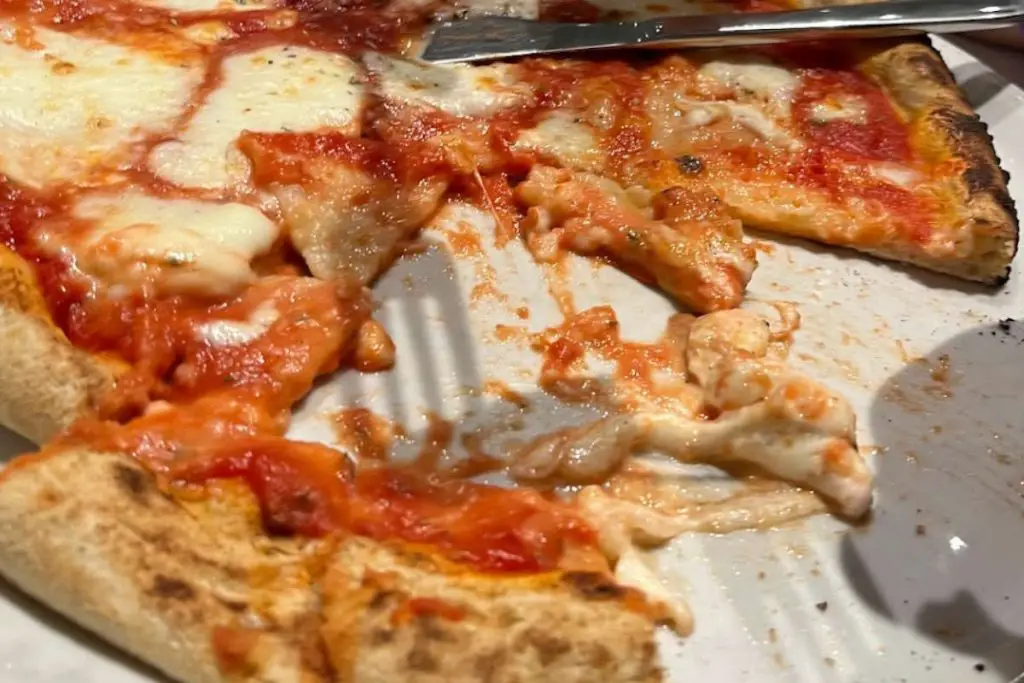
6. The Sacred Ritual of Sunlight
(I am a sunlight seeker who finds joy in nature)
In the Mediterranean, opening the windows is a daily ritual—passed down from grandmothers to mothers to us. Rain or shine, it’s the first breath of the day: a sign to cleanse, refresh, and welcome in new energy as “stale air makes stale minds.“
Nature here isn’t a luxury—it’s a life source. Even five minutes outside—touching sunlight, breathing crisp air—connects you to something larger and steadier than your to-do list.
Even kids with ADHD focus better after time outside (Kuo & Taylor, 2004). Despite wild winds, desert heat, and sticky humidity, Mediterranean people soak in every sunbeam they can find.
Micro-Habit: Start your day by opening a window, stepping outside, or simply looking at the sky. Stretch your body. Breathe in. Mark the start of a day not by your inbox—but by the sun.
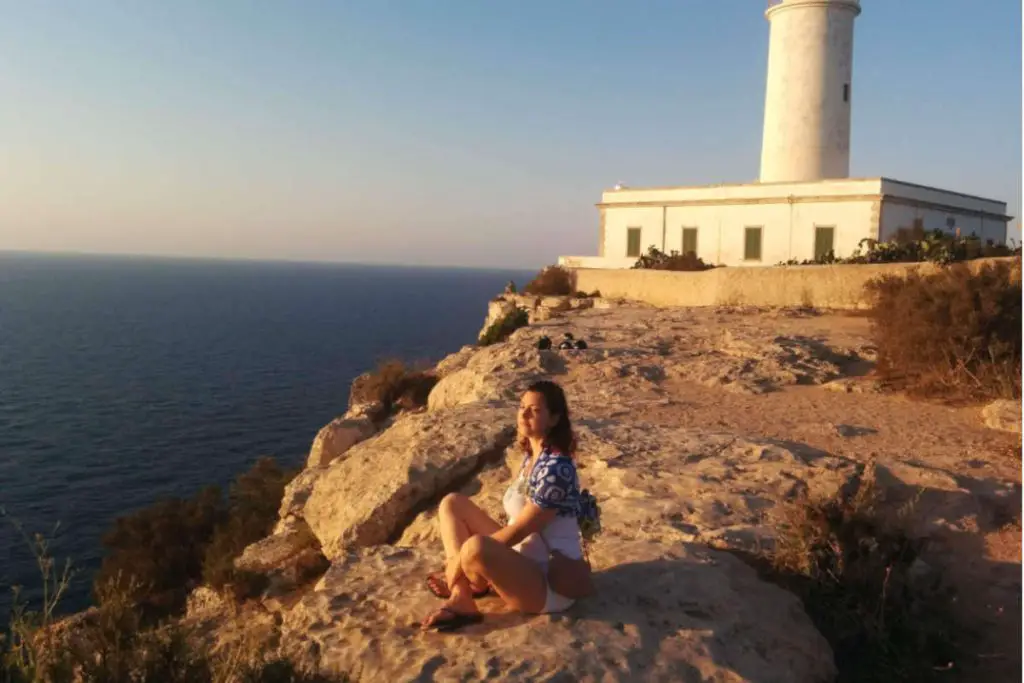
How to Rewire Your Identity (Step‑by‑Step)
Step 1: Spot & Reframe Self‑Talk
Your internal language shapes your reality.
- Old: “I hate cooking.”
- New: “I’m becoming someone who enjoys making simple, beautiful meals.”
Every reframe nudges your identity.
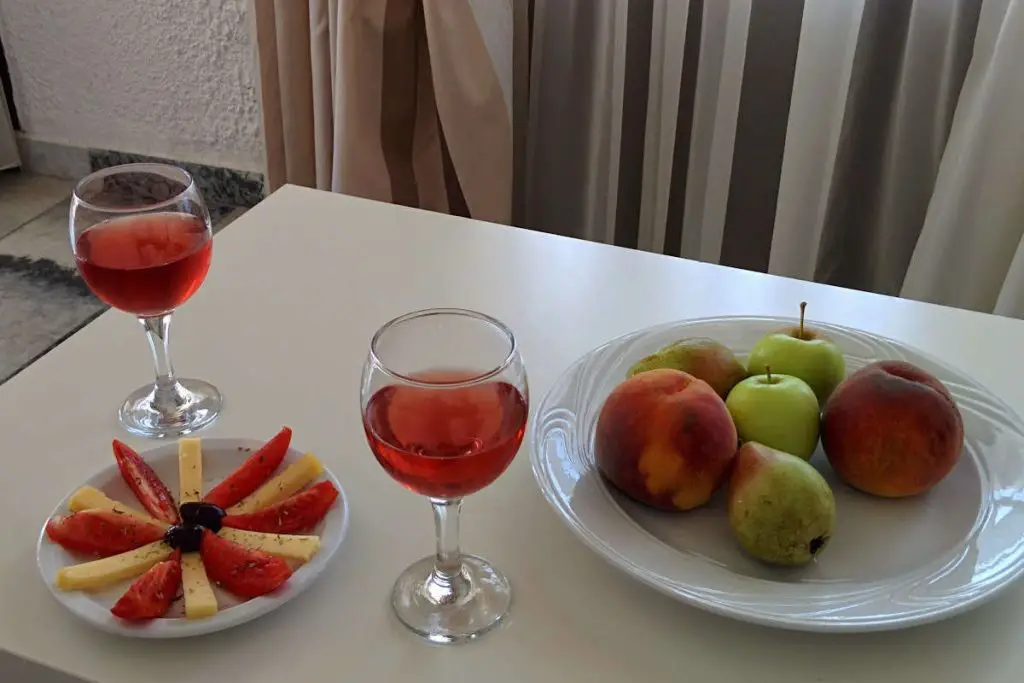
Step 2: Design Your Environment for Identity Cues
Your space speaks to your subconscious.
- Keep lemons and herbs visible → “I savour freshness.”
- Place walking shoes by the door → “I move easily.”
- Use wooden bowls, ceramic dishes → “Food is joy.”
Explore Mediterranean design cues

Step 3: Use Identity Rituals
Turn habits into rituals that reflect who you are.
- “I am a connector” → Host a simple meze night on Fridays.
- “I am a savorer” → Light a candle before you eat.
- “I am a mover” → Take a 10-minute evening stroll.
- “I am a celebrator” → Cook something seasonal with music playing.
- “I am a ritualist” → Brew coffee mindfully and sit in stillness.
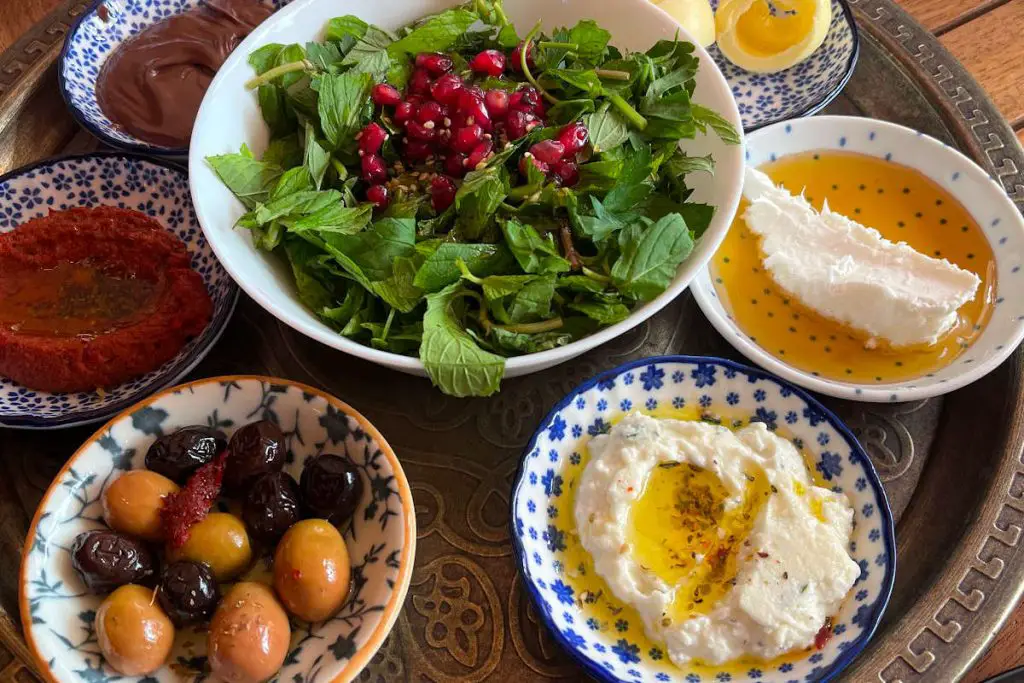
Mediterranean Lifestyle Benefits: The Identity Effect
Health Perks
The NIH reports that identity-aligned behaviour lowers inflammation markers twice as much as food tracking or restriction alone.
When your habits reflect your beliefs, your biology follows.
Psychological Perks
Two of the world’s five Blue Zones—where people live the longest and healthiest lives—are in the Mediterranean: Sardinia, Italy and Ikaria, Greece (Buettner, 2012).
The common thread? Time spent with friends and family. Social connection isn’t a bonus—it’s the foundation. A consistent finding across longevity research is that strong social bonds—particularly regular interaction with loved ones—are not merely beneficial, but central to long-term health. Evidence shows that the impact of social connection on mortality risk is comparable to well-established health risks such as smoking and excessive alcohol consumption, and even greater than the risks associated with physical inactivity and obesity (Holt-Lunstad et al., 2010).
Mediterranean centenarians live not only long lives, but joyful, productive ones. As the philosopher Epicurus said millennia ago, “Before you decide what to eat, find someone to eat with.” It’s this deep, consistent connection that makes health sustainable.
Joy, not judgment, is the engine of Mediterranean longevity. Elders don’t chase youth—they belong deeply.
As one Sardinian centenarian said, “We don’t live long by chasing time. We live by being with each other.”
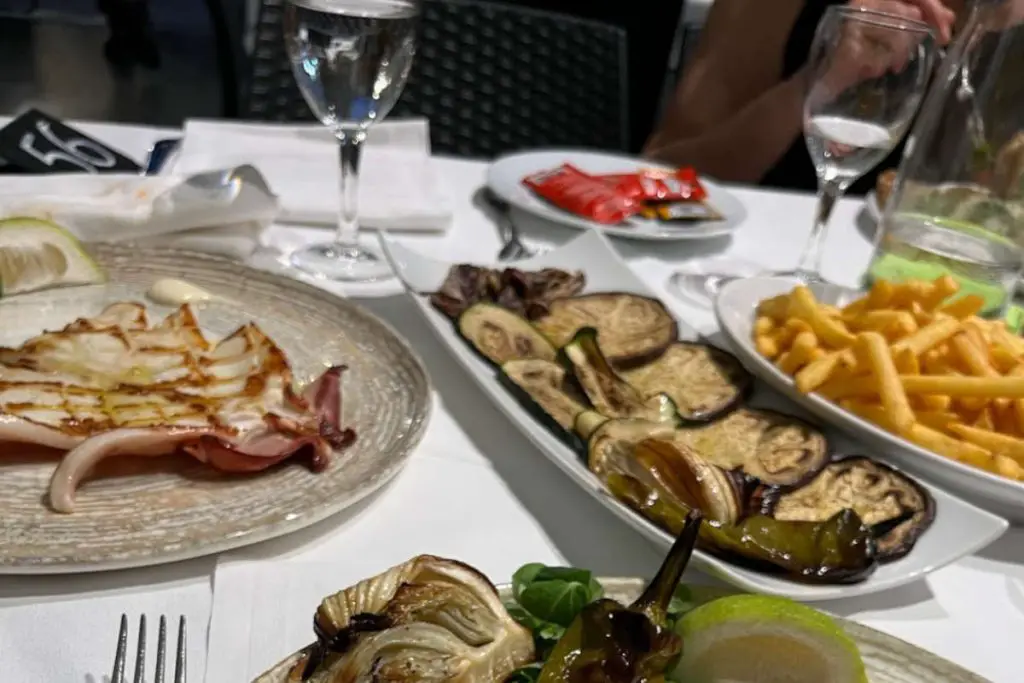
“But I’m Not Mediterranean!” – Here’s How to Make It Work for You
Common Belief: “I need a sea breeze, a vineyard, or a rustic terrace.”
Mediterranean Hack: It’s not about the sea view—it’s about the view you choose.
- Environment limitation? Open a window, add plants, or stroll in a park.
- No sunshine? Add houseplants, fairy lights, or a tabletop fountain.
- Short on time? Try a 10-minute screen-free meal or three deep breaths post-lunch.
- Too busy to cook? Assemble, don’t cook: olives, cherry tomatoes, nuts, feta, a drizzle of olive oil—and you’ve got a mezze plate.
- No one joins? Host a low-key ritual bruschetta night—make it playful, not preachy.
- Worried about authenticity? Adaptation is tradition—make a version that fits you.
Starter Challenge: The 7‑Day Identity Shift
Forget “trying” habits—this is about becoming. Each day, anchor one small action in your new Mediterranean identity.
| Day | Identity | Action |
| 1 | “I am a savorer” | Eat one screen-free meal |
| 2 | “I savour freshness” | Place a lemon on the counter |
| 3 | “I am a mover” | Park farther & walk |
| 4 | “I walk joyfully” | Take stairs at least once |
| 5 | “I am a connector” | Call a friend for 5 mins |
| 6 | “I honour my rhythm” | Take a 5-minute quiet pause |
| 7 | “I embody Mediterranean wellness” | Take the stairs at least once |
Bonus Days (For the Committed):
- Day 8: “I am a celebrator.” → Cook one seasonal ingredient with music playing.
- Day 9: “I rest with purpose.” → Sit by a window for 10 minutes, doing nothing (dolce far niente).
Identity-Based Habits Frequently Asked Questions
❓ What does identity‑based habit formation mean?
It means shaping habits not by forcing behaviours, but by shifting who you perceive yourself to be. When your self‑image aligns, actions follow naturally.
❓ Can I adopt just one trait?
Absolutely. You can begin with being a “mover” or “savorer.” Focus deep before layering more.
❓ How quickly do identity habits stick?
It varies, but small daily rituals, held for 2–4 weeks, can help cement a new identity.
❓ Does it work anywhere, anytime?
Yes. Whether in the Isle of Man, Colorado, or Tokyo, the psychological foundation remains the same.
❓ Can kids participate?
Definitely. Kids can be “food explorers” or “nature movers.” Modelling identity‑based habits helps them internalise healthy behaviours.
❓ What if I slip back to old habits?
That’s okay. Even Mediterraneans have off days—identity isn’t perfection, it’s direction.
Conclusion
The Mediterranean Sea may be far—but the Mediterranean within you is close. Whisper “I am a savorer” at your next meal, and notice how you feel. That’s identity taking root—and the start of lifelong wellness.
References
- Oyserman, D., Fryberg, S. A., & Yoder, N. (2007). Identity-based motivation and health. *Journal of Personality and Social Psychology, 93*(6), 1011–1027. https://doi.org/10.1037/0022-3514.93.6.1011
- Buettner D, Skemp S. Blue Zones: Lessons From the World’s Longest Lived. Am J Lifestyle Med. 2016 Jul 7;10(5):318-321. https://doi.org/10.1177/1559827616637066.
- Kalampogias Polychronis, Vasileios (2020). Eating Alone Together: exploring individual domestic space through food-related activities. Thesis (Master thesis), E.T.S. Arquitectura (UPM).
- Holt-Lunstad, J., Smith, T. B., & Layton, J. B. (2010). Social relationships and mortality risk: A meta-analytic review. *PLoS Medicine, 7*(7), e1000316. https://doi.org/10.1371/journal.pmed.1000316
- Kuo, F. E., & Taylor, A. F. (2004). A potential natural treatment for attention-deficit/hyperactivity disorder: Evidence from a national study. American Journal of Public Health, 94(9), 1580–1586. https://doi.org/10.2105/ajph.94.9.1580
